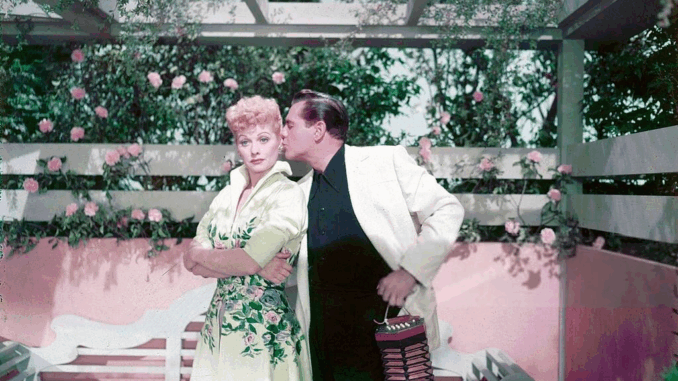
Lucille Ball and Desi Arnaz were Hollywood’s golden couple in the 1950s, blending love, laughter, and groundbreaking television in I Love Lucy. Their onscreen chemistry made millions believe they had the perfect marriage, but behind the curtain, their relationship was troubled. By 1960, after two decades of marriage, the pair finalized their divorce.
For Lucille Ball, the causes of the split were clear: she blamed Desi Arnaz’s infidelity and drinking. But Arnaz, for his part, had a very different opinion about what went wrong.
Lucille Ball’s Side of the Story
Ball often spoke candidly about the collapse of her marriage. She described years of frustration with Arnaz’s lifestyle, which included heavy drinking, long nights out, and a reputation for affairs. To her, these behaviors were incompatible with the stability she craved as a wife and mother.
In court filings, she cited “extreme cruelty” as the grounds for divorce. Later, in interviews, she admitted that her husband’s behavior had left her heartbroken. “It wasn’t something I could fix,” she once said. “I had to walk away.”
Desi Arnaz’s Perspective
Arnaz, however, did not believe that his drinking or infidelity alone explained their failed marriage. In his memoir A Book (1976), he argued that the intense pressures of their shared empire played a central role. Together, they weren’t just actors — they were producers, business owners, and pioneers running Desilu Productions, the studio behind I Love Lucy.
The couple worked grueling hours, often 12 to 14 hours a day, balancing their careers with raising two children. According to Arnaz, the demands of building and sustaining an empire left little room for intimacy or normal married life.
“It wasn’t that we didn’t love each other,” he reflected. “We did. But everything around us — the schedules, the studio, the constant attention — was bigger than we were. That’s what went wrong.”
Two Conflicting Narratives
The contrast between their perspectives is striking. Ball viewed their marriage as undone by personal choices: drinking, affairs, and absence. Arnaz saw it as undone by external pressures — fame, success, and responsibility.
While both explanations may hold truth, the divergence highlights how differently two people can interpret the same relationship. To Ball, Arnaz’s actions were too painful to endure. To Arnaz, the marriage fell apart under the crushing weight of success.
Life After Divorce
Despite the painful split, Ball and Arnaz remained connected for the rest of their lives. They co-parented Lucie and Desi Jr., and they continued to respect each other both personally and professionally. Ball would later describe Arnaz as “the love of my life,” even though they could not make their marriage work.
Arnaz, for his part, never stopped admiring Ball. In later years, he praised her brilliance as both a comedian and a businesswoman. When he died in 1986, Ball was among the last people to speak to him. According to family members, their final words to each other were simple and heartfelt: “I love you.”
A Legacy Larger Than Their Marriage
The story of Lucille Ball and Desi Arnaz is more than just a Hollywood divorce. It is the story of two visionaries who changed television forever, even as their personal lives unraveled.
Their marriage may have ended, but their legacy remains: I Love Lucy continues to air worldwide, bringing joy to generations who never knew them as a couple. And their differing explanations of “what went wrong” remind us that even the most iconic love stories are often more complex than they appear.
